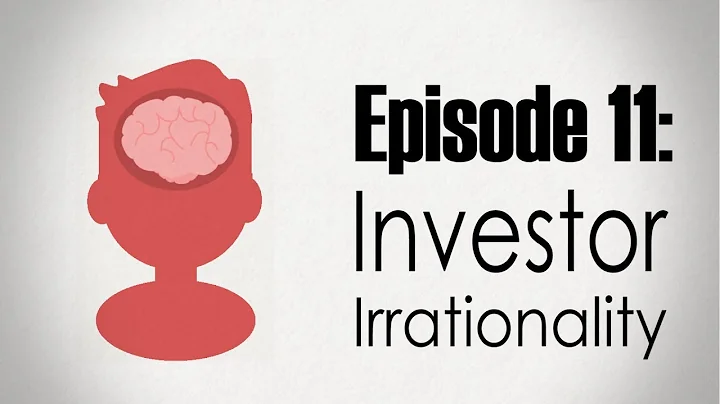Behavioral finance suggests that?
Behavioral finance theory suggests that the patterns of overconfidence, overreaction and over representation are common to many investors and such groups can be large enough to prevent a company's share price from reflecting economic fundamentals.
Tap the card to flip 👆 - behavioural finance is commonly defi ned as the application of psych to understand human behaviour in finance or investing. - the theory contends that investors are human beings, rather than rational, logical creatures, and are therefore subject to personal beliefs and biases that may lead to.
The key concepts in behavioral finance, such as bounded rationality, heuristics, prospect theory, mental accounting, and biases like overconfidence, confirmation bias, and loss aversion, highlight the irrational financial choices people make, deviating from the assumptions of traditional finance models.
Behavioral finance is the study of the influence of psychology on the behavior of investors or financial analysts. It also includes the subsequent effects on the markets. It focuses on the fact that investors are not always rational, have limits to their self-control, and are influenced by their own biases.
Behavioral finance asserts that rather than being rational and calculating, people often make financial decisions based on emotions and cognitive biases. For instance, investors often hold losing positions rather than feel the pain associated with taking a loss.
One of the key aspects of behavioral finance is the influence of emotions on investment decisions. Emotions such as fear and greed can lead investors to make impulsive choices, like selling stocks during a market downturn or buying into a market bubble.
Behavioral finance, a sub-field of behavioral economics, proposes psychology-based theories to explain stock market anomalies, such as severe rises or falls in stock price. The purpose is to identify and understand why people make certain financial choices.
Overconfidence, cognitive dissonance, regret theory, and prospect theory are four themes in the field of behavioural finance. These four topics served as an introduction to the numerous distinct themes that have emerged in this discipline over the previous few years.
Traditional finance does not consider market interactions and focuses on individual investors' rationality, while behavioural finance acknowledges that sentiments and emotions play a crucial role in determining investing decisions.
While behavioral finance focuses on the human behavior that often harms investing and financial decisions, it highlights a handful of benefits such as greater self- and social-awareness, greater analysis and awareness of biases and a better understanding of market behavior overall.
What is a real life example of behavioral finance?
Example: Another classic example of behavioural finance in action is the tendency for investors to practice Loss Aversion. Many investors hold on to losing stocks for too long, hoping for a rebound.
Advisors who use behavioral finance in their practices benefit from stronger trust with clients and a better ability to manage expectations. Additionally, when advisors understand their clients' biases, they can incorporate the principles of behavioral finance into their portfolio-construction processes.

- R #1: Recognize the Situation. ...
- R #2: Reflect on Your Values. ...
- R#3: Reframe Your Viewpoint. ...
- R#4: Respond Purposefully.
Reduces Confidence: Another big problem with behavioral finance theory is that it drastically reduces investor confidence. After reading these theories, many investors have reported that they face difficulties while making decisions. This is because investors start second-guessing themselves.
In behavioral economics, the behavioral assumption is that, under their resource constraints, humans are rational actors – they will attempt to maximize their utilities, thereby generating the greatest profit and outcomes.
Behavioral finance is the study of how psychological influences, such as emotions like fear and greed, as well as conscious and subconscious bias, impact investors' behaviors and decisions. It removes the misconception that investors always make rational decisions that are in their best interest.
The two pillars of behavioral finance are cognitive psychology (how people think) and the limits to arbitrage (when markets will be inefficient).
Behavioral finance teaches that people make costly mistakes when it comes to financial decisions due to emotional biases, cognitive errors, and lack of discipline. Financial advisors should be able to understand how these can get in the way of financial success and intervene as a behavioral coach to correct the course.
Conclusion
Behavioural finance deals with the study of investor's psychology and its role in making financial decisions.. This field relaxes the assumption of rationality present in standard finance theories and explains that real investors are influenced by their psychological biases.
Now that you have been introduced to the general definition and viewpoints of behavioral finance, we will now discuss four themes of behavioral finance: overconfidence, financial cognitive dissonance, regret theory, and prospect theory.
How is behavioral finance replacing traditional finance?
Behavioural Finance relaxes rationality assumption of traditional finance theory and explains the psychological biases that influence investors in real life. These biases get converted into behaviour of investors which results in taking sub optimal decisions by them.
A cognitive bias is an error in cognition that arises in a person's line of reasoning when making a decision is flawed by personal beliefs. Cognitive errors play a major role in behavioral finance theory and are studied by investors and academics alike.
Behavioural economics could contribute to creating more concrete benefits for consumers by shaping laws that can be practically used by their beneficiaries. Otherwise, such laws risk burdening industry while not delivering tangible results to their intended beneficiaries.
Some examples of self-attribution bias in trading include taking excessive credit for wins, blaming external factors for losses, behaving overly confidently, ignoring past mistakes.
Overconfidence bias is a cognitive bias that can negatively affect investment returns by leading people to overestimate their skill and knowledge, trade too frequently, incur higher costs, or ignore relevant information and feedback. Because of this bias, investors can make poor financial decisions.